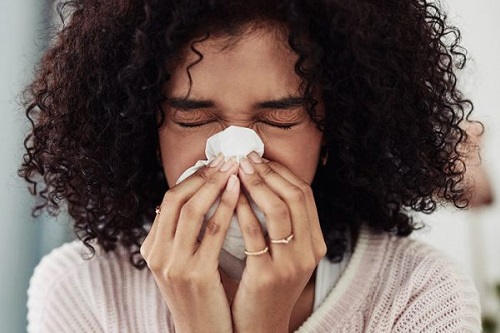Key points
- Cover coughs and sneezes using a tissue or your elbow.
- Wash your hands immediately after blowing your nose, coughing, or sneezing.
- Covering coughs and sneezes and keeping hands clean can prevent the spread of respiratory illnesses.

Overview
Covering coughs and sneezes and keeping hands clean can help prevent the spread of serious respiratory illnesses like influenza, respiratory syncytial virus (RSV), pertussis (whooping cough), and COVID-19.
Germs can be easily spread by:
- Coughing, sneezing, or talking
- Touching your face with unwashed hands after touching contaminated surfaces or objects
- Touching surfaces or objects that may be frequently touched by other people
Recommendations
Stop the spread of germs
- Cover your mouth and nose with a tissue when you cough or sneeze
- Throw used tissues in the trash
- If you don't have a tissue, cough or sneeze into your elbow, not your hands
Wash your hands
Remember to immediately wash your hands after blowing your nose, coughing, or sneezing.
Washing your hands is one of the most effective ways to prevent yourself and your loved ones from getting sick, especially at key times when you are likely to get and spread germs.
- Wash your hands with soap and water for at least 20 seconds
- If soap and water are not readily available, use an alcohol-based hand sanitizer that contains at least 60% alcohol to clean hands
Avoid sick people
To help prevent the spread of respiratory disease, you can also avoid close contact with people who are sick. If you are ill, you should try to distance yourself from others so you do not spread your germs. Distancing includes staying home from work or school when possible.
